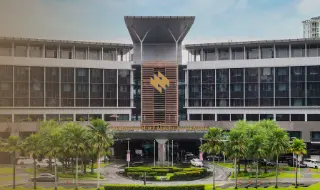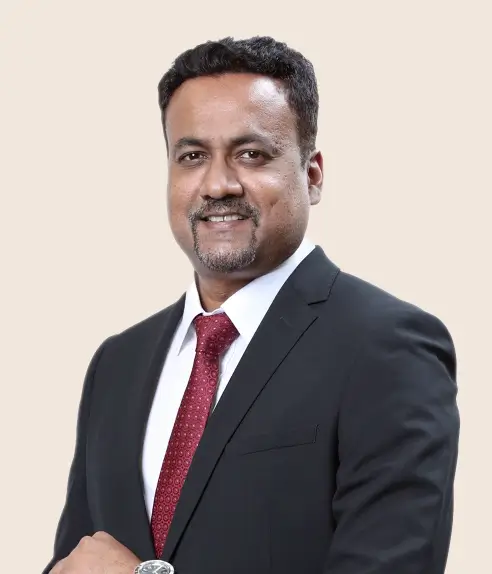What is Vascular Surgery?
Vascular surgery is a specialised field of surgery that focuses on the diagnosis and treatment of disorders affecting the blood vessels, including arteries, veins, and lymphatic vessels. Common symptoms that may warrant a referral to a vascular surgeon include:
- Persistent pain or cramping in the legs, especially during physical activity
- Swelling in the legs or feet, along with changes in skin colour, such as turning pale, blue, or red
- Enlarged, twisted veins that are visible under the skin, often in the legs, which cause discomfort, aching, or a heavy feeling
- Chronic wounds or ulcers, particularly in the legs or feet, that do not heal within a reasonable time
- Persistent coldness in the hands or feet, even in warm environments
- Erectile dysfunction can be an early sign of vascular disease
- Persistent abdominal pain or pulsating mass
Why Should You Choose Prince Court’s Vascular Surgeons?
Expertise and Specialisation
At Prince Court Medical Centre, our vascular surgeons have undergone rigorous training and possess extensive knowledge in the field of vascular surgery. With their expertise, they are equipped to diagnose and treat a wide range of vascular conditions, including peripheral artery disease, venous disorders, aneurysms, and more. Whether you require surgical intervention or minimally invasive procedures, our vascular surgeons offer a comprehensive range of treatment options to meet your specific needs.
Our surgeons are highly skilled and experienced, performing up to 600 surgeries annually, including numerous complex procedures for vascular conditions. To ensure the highest standard of care, we have invested in cutting-edge diagnostic tools, state-of-the-art operating rooms, and advanced intensive care units. These advanced resources enable our vascular surgeons to perform precise and effective interventions, leading to optimal outcomes for our patients.
Multidisciplinary Approach
At Prince Court Medical Centre, our approach to vascular surgery is multidisciplinary, recognising that vascular conditions often require comprehensive care. We collaborate closely with other healthcare professionals such as interventional radiologists, cardiologists, and wound care specialists. This collaboration ensures that you receive holistic care that addresses not only the vascular condition but also your overall well-being. The personalised treatment plans developed through this collaborative approach are tailored to your unique needs, maximising the effectiveness of the care you receive.
Prince Court Medical Centre is renowned for its commitment to safety, quality, and excellence in healthcare. We adhere to stringent safety protocols and follow best practices to minimise the risk of complications and ensure your well-being throughout your journey with us. Our reputation for delivering high-quality care has made us a trusted choice for vascular treatments.
Common Vascular Surgical Conditions
- Peripheral Artery Disease (PAD)
- Aneurysms
- Varicose Veins
- Deep Vein Thrombosis (DVT)
- Carotid Artery Disease
- Renal Artery Stenosis
- Mesenteric Ischemia
- Vascular Trauma
- Vascular Access for Dialysis
- Lymphedema
Vascular Surgical Procedures
- Arteriovenous Fistula (AVF) Creations – surgical creation of a connection between an artery and a vein, typically in the forearm, to provide long-term access for haemodialysis treatments in patients with kidney failure
- Transposition of AVF – relocation of an existing arteriovenous fistula to a different location, usually performed when the original site is no longer suitable for haemodialysis access
- Superficialization of AVF – a procedure that involves repositioning a deep arteriovenous fistula closer to the surface of the skin to facilitate easier access for dialysis treatments
- Loop Graft Creation – placement of a synthetic tube-shaped graft to create a connection between an artery and vein, commonly used as an alternative access for dialysis when a patient's blood vessels are not suitable for fistula creation
- Thrombectomy – surgical removal of blood clots (thrombus) from a blood vessel to restore proper blood flow and prevent further complications
- Vein Patch Repair – a procedure in which a damaged or narrowed blood vessel is repaired using a patch of healthy vein tissue, often used in cases of arterial injury or aneurysm
- Femoral/Brachial Embolectomy – surgical removal of a blood clot (embolus) that is blocking a major artery in the thigh (femoral) or arm (brachial), aiming to restore blood flow and prevent tissue damage
- Varicose Vein Surgery – surgical interventions to treat varicose veins, including open procedures such as vein ligation and stripping, as well as minimally invasive techniques like endovenous ablation or glue therapy
- Lower Limb Bypass Surgery – creation of a new pathway for blood flow using a bypass graft (typically a synthetic graft or vein) to bypass a blocked or narrowed artery in the leg, improving circulation and alleviating symptoms
- Excision of Pseudoaneurysm – surgical removal of a pseudoaneurysm, which is an abnormal bulging of an artery caused by a tear in the vessel wall, to prevent rupture and potential complications
- Open Aneurysectomy and Inlay Graft – surgical removal of an aneurysm followed by the placement of a synthetic graft inside the remaining healthy artery to reinforce the weakened area
- Open Aorto-bifemoral Bypass Surgery – a major surgical procedure that involves creating a bypass using synthetic grafts to redirect blood flow around blocked or narrowed segments of the aorta and restore blood supply to the lower extremities
- Fistuloplasty – a minimally invasive procedure that involves the use of a balloon catheter to widen and improve blood flow within a narrowed or stenotic arteriovenous fistula
- Endovascular Aneurysm Repair (EVAR) – a less invasive alternative to open surgery for treating abdominal aortic aneurysms, which involves the placement of a stent graft within the aneurysm to reinforce the weakened vessel wall and prevent rupture
- Thoracic Endovascular Aortic Repair and Lower Limb Angioplasty – a combination of procedures performed to treat thoracic aortic aneurysms using endovascular techniques, along with angioplasty to improve blood flow in the lower limbs by widening narrowed arteries





















